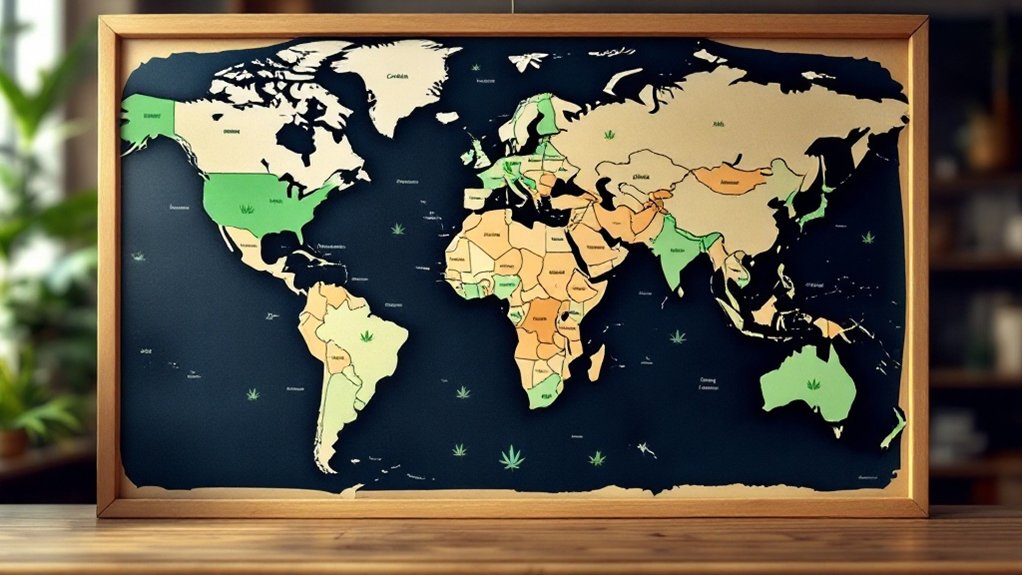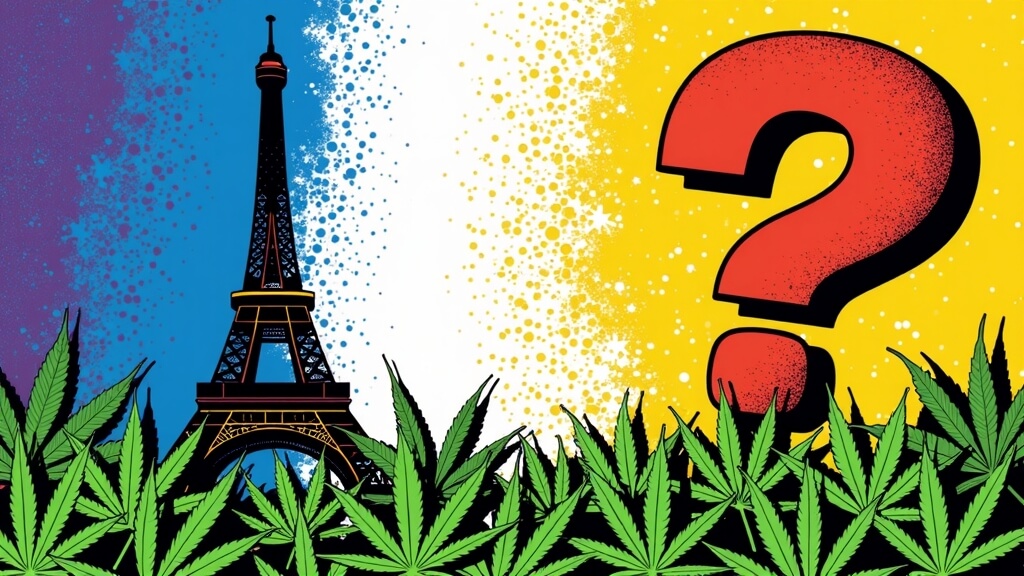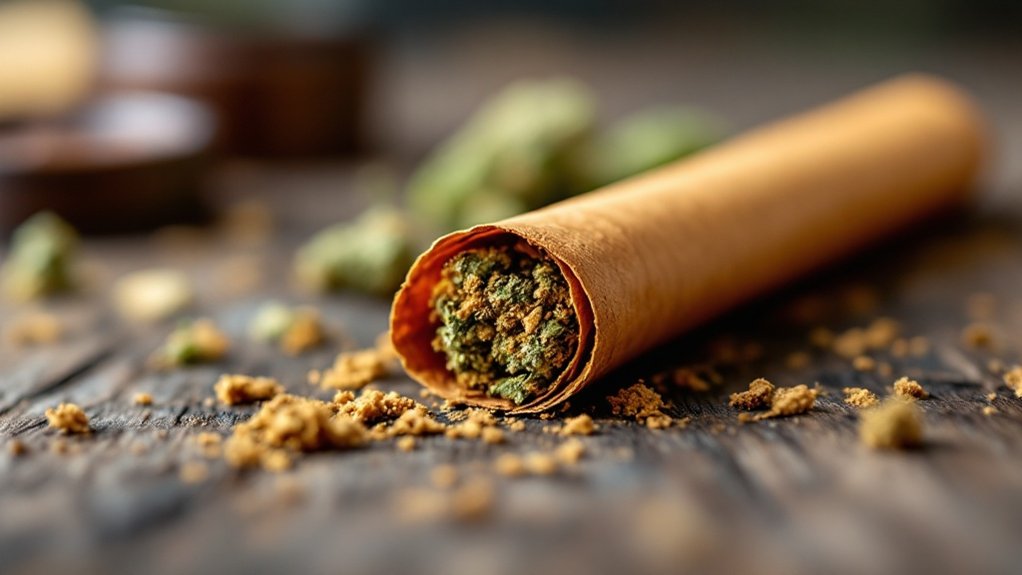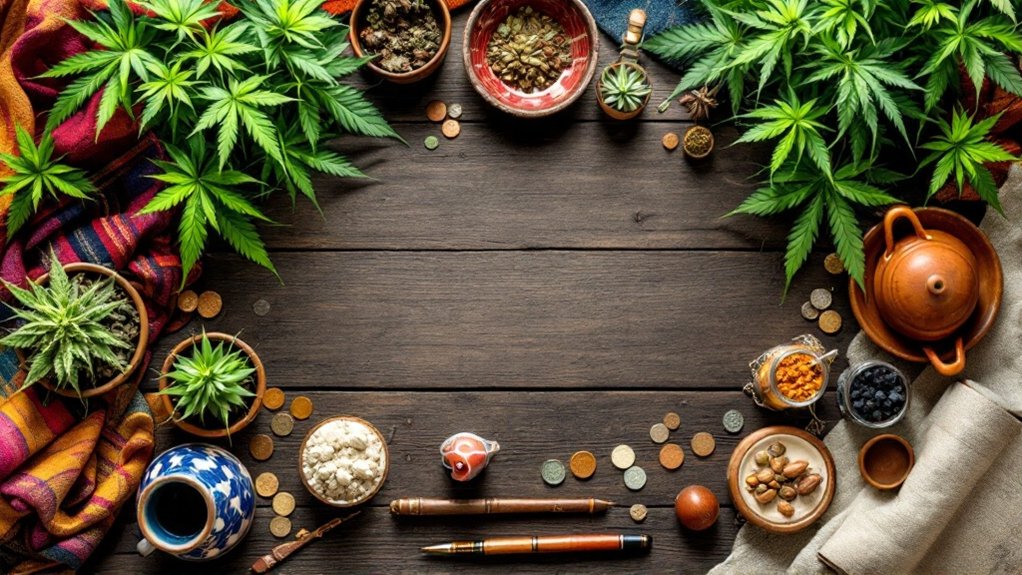Cannabis legalization is spreading globally. Uruguay led the charge in 2013, followed by Canada in 2018. Thailand shocked everyone by becoming Asia’s trailblazer. Mexico, Germany, and Malta have joined the party with limited legalization. Twenty-two countries have decriminalized possession, while over half the world permits medical use. Economic impacts are substantial – Thailand’s market could hit $9.6 billion by 2030. The cannabis map keeps shifting, with courts and legislators constantly redrawing the lines.
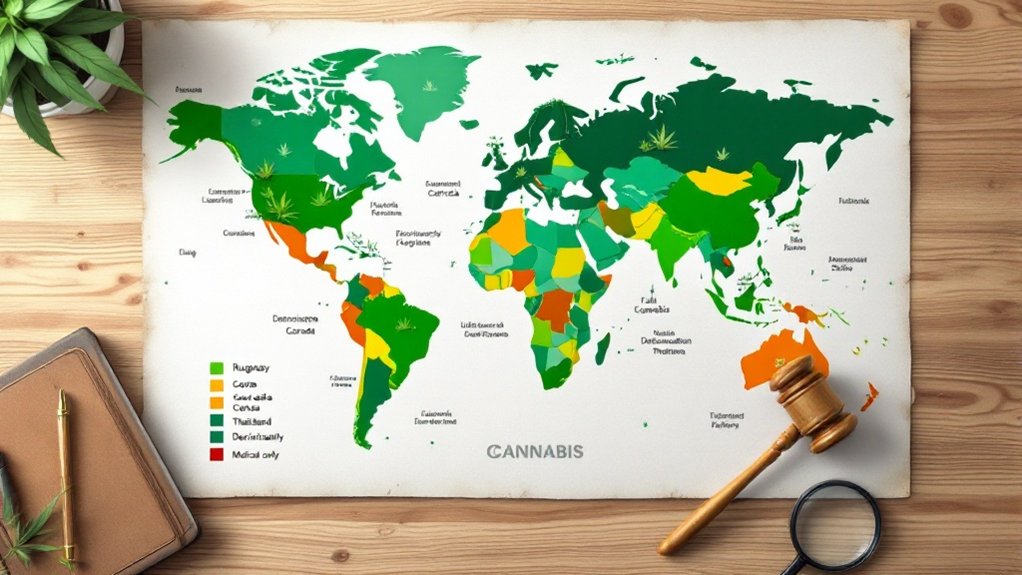
While much of the world maintains harsh penalties for marijuana possession, a growing number of nations have embraced cannabis reform. The landscape is changing fast. Really fast.
Uruguay led the charge in 2013, becoming the world’s first country to fully legalize recreational cannabis. Bold move. Canada followed suit in 2018, making history as the first G7 nation to permit nationwide commercial sales. And then there’s Thailand – Asia’s unexpected cannabis pioneer legalizing both medical and recreational use. These three countries stand alone with their extensive legal frameworks allowing commercial sales.
The global cannabis pioneers dared to go where others wouldn’t, establishing fully legal recreational markets while the world watched.
Mexico joined the party in June 2021, legalizing possession up to 28 grams and allowing citizens to grow up to six plants at home. In Mexico, the Supreme Court declared cannabis prohibition unconstitutional in 2018, citing it violated the human right to free development of personality. Germany’s recent cannabis reform permits adult possession and home cultivation. Malta took a similar approach in 2021, though on a smaller scale.
Some countries are taking baby steps. South Africa and Georgia allow personal use and private cultivation but draw the line at commercial sales. No dispensaries popping up there. The Netherlands, despite its coffee shop reputation, technically hasn’t legalized cannabis – they’ve just mastered the art of looking the other way.
Medical cannabis has gained wider acceptance globally. Over half the world’s countries now permit some form of medical marijuana. Thailand got there in 2018, with Germany, Canada, and Malta building robust medical programs alongside recreational reforms. In the United States, despite federal prohibition, 39 states now allow medical cannabis use with varying regulations and qualifying conditions. Luxembourg and Georgia are developing their own medical frameworks. Albania joined this growing trend when it legalized medical use in July 2023.
Approximately 22 countries have decriminalized recreational cannabis, meaning you might get a fine instead of jail time. Progress, sort of.
Cannabis commerce is booming where it’s permitted. Thailand’s market could hit $9.6 billion by 2030. That’s serious cash. Meanwhile, Malta and Luxembourg are experimenting with non-profit cannabis clubs rather than full commercialization.
The tide is turning. Each year brings new countries into the fold, whether through court decisions, legislative action, or public referendums. The global cannabis map is being redrawn, one country at a time.
Frequently Asked Questions
How Does Cannabis Legalization Affect Tourism in These Countries?
Cannabis legalization typically boosts tourism notably. Denver hotels raked in $130 million post-legalization. No surprise there.
In Colorado’s mountain areas, tourists account for a whopping 90% of recreational sales. The economic ripple effect creates jobs and stimulates businesses like transportation and lodging.
Colorado saw tourism jump 10% specifically due to cannabis access. Rural areas with scenic views? They’re cashing in by combining natural attractions with legal weed experiences.
What Penalties Exist for Violating Specific Limits in Legal Countries?
Even in “legal” countries, exceeding limits brings serious trouble.
Fines are common for first offenses – ranging from $250 in Canada to thousands in Uruguay. Multiple violations? Jail time.
Netherlands coffee shops face closure for selling above 5 grams per person.
Thailand’s penalties remain brutal despite recent reforms.
Smuggling across borders? Don’t even think about it. Trafficking charges and years behind bars await the foolish.
Legalization doesn’t mean free-for-all.
How Do Workplace Drug Testing Policies Change After Legalization?
Post-legalization, workplace drug testing undergoes major overhauls.
Employers shift from detecting any cannabis use to measuring actual impairment. New laws often protect off-duty use. Imagine that.
Companies can’t fire someone just for weekend weed anymore in states like California.
Federal jobs? Different story. They’re still stuck in prohibition mode.
The testing itself changes too.
Looking for current THC, not metabolites.
Progress, finally.
Can Non-Citizens Purchase Cannabis Legally in These Countries?
Access varies wildly across countries.
Canada? No problem – just show ID.
Thailand welcomes tourists with open dispensaries, though THC limits apply.
Uruguay? Tough luck. Citizens and residents only.
The Netherlands mostly says yes, while Spain keeps tourists out of cannabis clubs.
America’s patchwork of state laws generally allows visitors to buy where it’s legal – just don’t cross borders.
Portugal decriminalizes but doesn’t sell.
The rules are a maze. Navigate carefully.
What Banking Restrictions Affect Legal Cannabis Businesses Internationally?
Legal cannabis businesses face brutal banking hurdles worldwide.
Most banks refuse service due to federal prohibition, even in locally-legal markets.
Result? Cash-only operations. Security nightmares. Payment processing? Forget about it.
Banks fear money laundering charges and regulatory penalties, making basic financial services nearly impossible to access.
AML compliance costs are astronomical. Cross-border transactions? Practically non-existent.
The industry’s literally stuffing money into mattresses while governments debate solutions.
